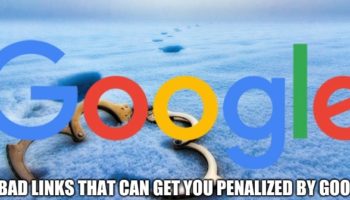If you want your search strategy to bear success, then you need to target the right keywords. Once you learn to identify the best keyword opportunities, you can drive the most amounts of traffic, conversions, and qualified leads for your brand.
The targeting keywords are terms and phrases having connections with the industry, audience, and the offerings.
-
Customer defining keywords: They are search phrases that identify a particular subset of customers or audience. A customer will resort to such keywords to describe the self.
-
Branded keywords: As the sub-head suggest, these keywords will include the name of a specific brand and other branded terms. These keywords are descriptive and will contain product names or types.
-
Market segment keywords: These are generic keywords associated with brands or industries. A targeted audience will use these terms for searching general info within a vertical.
-
Competitor keywords: These keywords target the brand names that are competing with other businesses, their products, and services. Researching competitor keywords allows a brand to attract a similar audience of potential and interested buyers.
-
Product keywords: There are terms related to specific offerings of a brand. These keywords directly refer to a company’s services and products. Every brand should have a keyword strategy so that customers can find the offerings through web searches.
-
Geo-targeted keywords: These keywords mention the name of a location. A searcher uses such a keyword to look for results available nearby.
The buyer keywords
The buyer keyword is a term that a searcher uses to purchase a product or a service. These keywords categorize a searcher based on the presence in the purchase funnel.
-
Navigational keywords: These are also known as ‘go’ keywords. A searcher will use such a keyword to find a specific brand. Navigational keywords come into play when a searcher is still in the consideration phase.
-
Informational keywords: Also recognized as ‘know’ keywords, they come into use when searching for general information about a topic. Searchers use informational keywords when they are in the awareness phase.
-
Transactional keywords: Since the ‘know’ and ‘go’ phases are over, it is time to enter the ‘do’ phase. A searcher will use a transactional keyword when in the conversion phase.

Keywords by length
You can evaluate a keyword based on its length, and they are of three types.
-
Short-tail keywords: These are generic keywords that are very popular and broad search items. They generate a high volume of traffic.
-
Mid-tail keywords: These are somewhere in between the short-tail and the long-tail keywords. These terms are more descriptive than short-tail keywords but less so than long-tail ones.
-
Long-tail keywords: The longest search terms target a specific topic to a particular set of audience. They generate low traffic and competition, making them easier to rank. Conversion rates for these keywords are generally quite high.
On-Site Keywords
These keywords refer to those used to create contents like landing pages or blog posts.
-
Primary keywords: These keywords are the main target on a webpage. Every page with SEO content has one targeted primary keyword assigned.
-
Related keywords: These are also known as LSI or latent semantic keywords. They are terms or phrases that relate to or are a variation of the primary keyword.
It should help
If you want to create an informed and strategic marketing plan, knowing the different types of keywords can be advantageous. Once you know all the options, you will also know how to connect with the audience and boost conversions.






